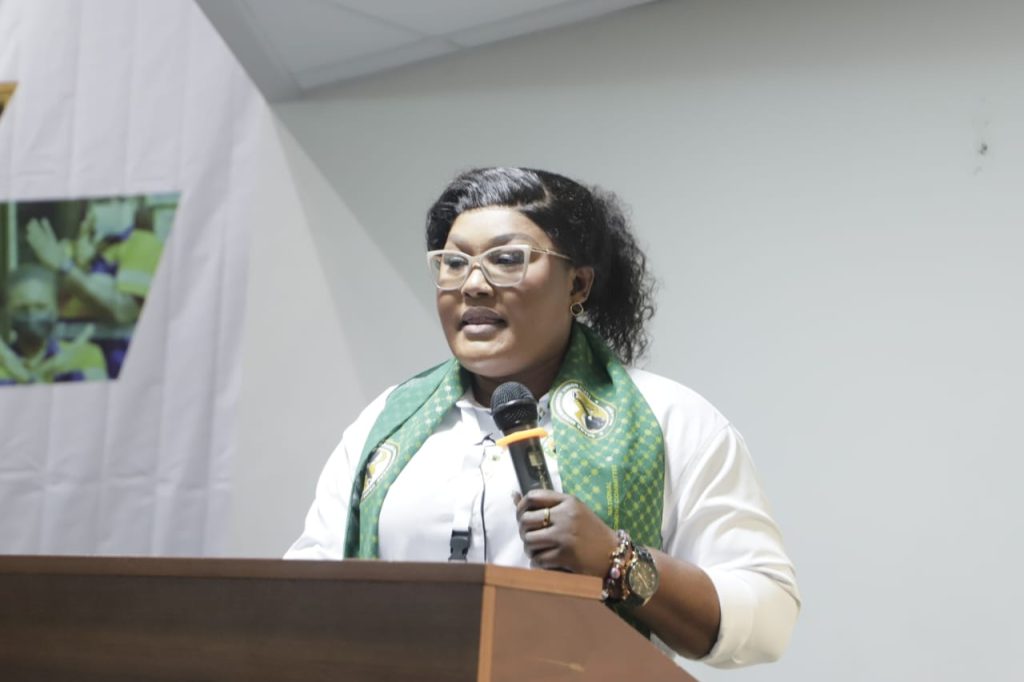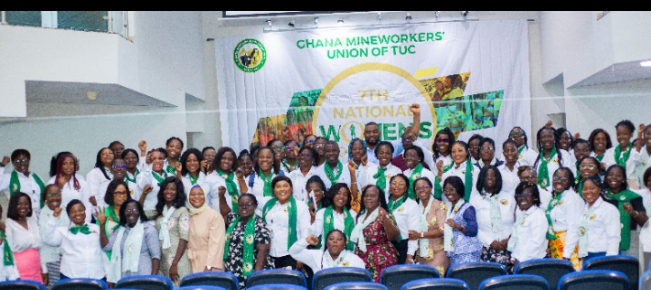By Morkporkpor Anku
Accra, Nov. 7, GNA – Madam Fafanyo Kukubor Amegavi, a Gender Legal Officer at the Minerals Commission, has called on stakeholders to explore solutions and strategies to lay the foundation for a more gender-equitable and empowering work environment for men and women in mining.
She said some of these strategies would include women’s entry into the technological landscape of the mining industry to extend beyond mere inclusivity to shape the sector’s future.
Madam Kukubor Amegavi was speaking at the 7th National Women’s Conference of the Ghana Mineworkers’ Union (GMWU) of TUC on the theme: “Building a Resilient Inclusive Mining Sector in a Changing World of Work: The Role of Women.”
She said as the industry progressively embraced digitalization, women, who become proficient in programming and managing mining equipment, would position themselves for success.
“This proficiency would ultimately enhance operational efficiency, safety, and sustainability in mining. Moreover, technology adaptation challenges entrenched gender roles and stereotypes, steering a path to a more diverse and innovative mining workforce. As you know technology is neither male nor female, it just works,” she said.
She said the dynamism of the mining sector necessitated a perpetual pursuit of knowledge and skills and as women venture into Science Technology Engineering and Mathematics, “we are sure to gain the technical expertise imperative for excelling in mining engineering, geology, and environmental science.”
The Gender Legal Officer said the ability to adapt and develop soft skills would enable them to navigate the constantly shifting dynamics of the workplace and cultivate effective leadership within the mining industry.
These partnerships enable women to influence industry practices, from fostering environmental sustainability to championing labour rights.
Madam Kukubor Amegavi said collaborating with diverse stakeholders empowered women to extend their impact beyond the mining industry.
“Women’s contributions transcend the confines of the mining sector, permeating broader societal progress, ensuring that mining practices adhere to ethical, sustainable, and globally expected standards for corporate responsibility,” she added.
She said women continue to actively engage in various aspects of the mining value chain, from exploration to extraction, processing, and even trading nevertheless, such efforts often go unnoticed and are undervalued.

Madam Florence Euphemia Nkrumah, National Women’s Committee Chairperson, said the mining sector had played a pivotal role in shaping the economies of nations, contributing significantly to industrialization, infrastructure development and job creation.
However, she said it was an industry that had historically grappled with various challenges, including gender disparities, environmental concerns, and the need to adapt to a rapidly changing world of work.
She said the business case for gender inclusion is clear and research showed that companies with greater diversity are more innovative, profitable, and responsive to local communities.
Madam Nkrumah said as mining embraced renewable energy, automation, and sustainability, attracting more women, local groups, private individuals, and people of varied ethnicities would enhance innovation and community engagement.
She said a lasting change required government legislation and industry initiatives promoting diversity and pay equity, along with more investment in education for women and girls in mining disciplines.
“Gender inclusion must become a cross-cutting priority embedded into policies and workplace cultures,” she added.
Madam Philomena Aba Sampson, 2nd Vice Chairperson, GMWU, said the world of work had changed and continues to change very rapidly and it was important that “we take a step back to focus on what is ahead of us.”
She said, “We cannot deny the fact that the world of work has changed immensely and continues to do so; this phenomenon became evident when the global pandemic hit the world.”
She said the world of work had taken a new image pushing most of the workforce into non-standard forms of employment such as casualization, fixed term contract among others, pushing particularly Women into domestic labour and unsalaried work that lacked security and, in most cases, not covered by labour laws.
Madam Sampson said the time had come for them to have a paradigm shift and adopt gender-smart job strategies to address the role women could play in the changing world of work and to build a resilient gender inclusiveness in the mining sector.

Madam Vida Brewu, Head of Training, Programmes and Stakeholder Relations, Oversight Responsibility for Women Issues at GMWU, said the conference was to deliberate on the current happenings in the world of work and bring their perspective on the issues.
She said being a male-dominated field (mining industry), gradually the number of women in the industry was increasing and now more women were found in that space.
Madam Brewu said the women in the industry needed reskilling and retooling since the world of work was changing to enable them to improve on their input.
GNA